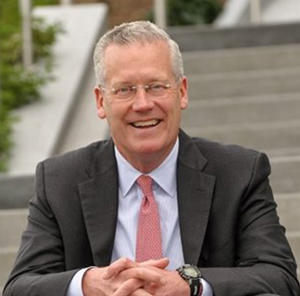Presidential hopeful Bernie Sanders inserted himself in a tense local battle over a large-scale development northeast of Boston.
Before the Democratic Party’s primary in Massachusetts on Tuesday, in which Sanders came second behind Joe Biden, Sanders tweeted support for local groups that want to halt the 161-acre Suffolk Downs project over concerns the planning process wasn’t accessible to non-English speakers, according to Boston.com.
“We need affordable housing for all instead of more gentrifying luxury developments for the few,” he tweeted. “I stand with the longtime residents of East Boston fighting displacement from the communities they have spent generations building.”

HYM Investment Group’s Thomas O’Brien
Developer HYM Investment Group wants to build around 10,000 residential units, including about 1,400 considered affordable, at the former Suffolk Downs racetrack in East Boston.
The response from local elected officials, residents, and others was mixed. Some praised Sanders’ stance. HYM partner Thomas O’Brien shot back at Sanders, saying that he “agreed that Boston needs more affordable housing” and that the firm’s project would deliver just that “without displacing a single resident.”
Some locals worry the project will fuel rent hikes in neighborhoods around the old racetrack.
HYM’s proposed affordable units would be available to people making 70 percent of Boston’s area median income, which is around $90,000 for a family of four, according to Boston.com.
Boston City Councilor Lydia Edwards wants HYM to make some units available to lower-income families because the median income in East Boston is closer to 50 percent AMI than 70 percent. [Boston.com] — Dennis Lynch
